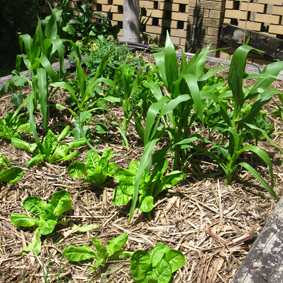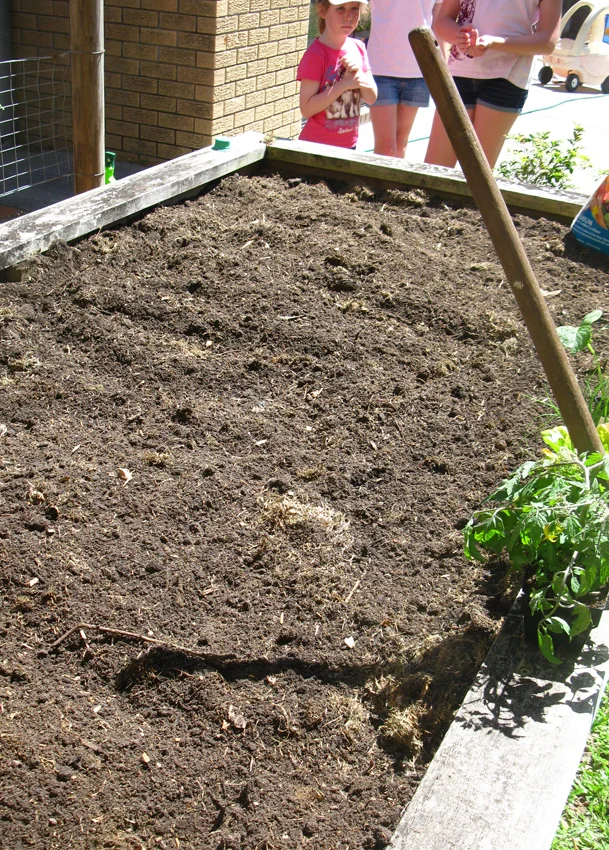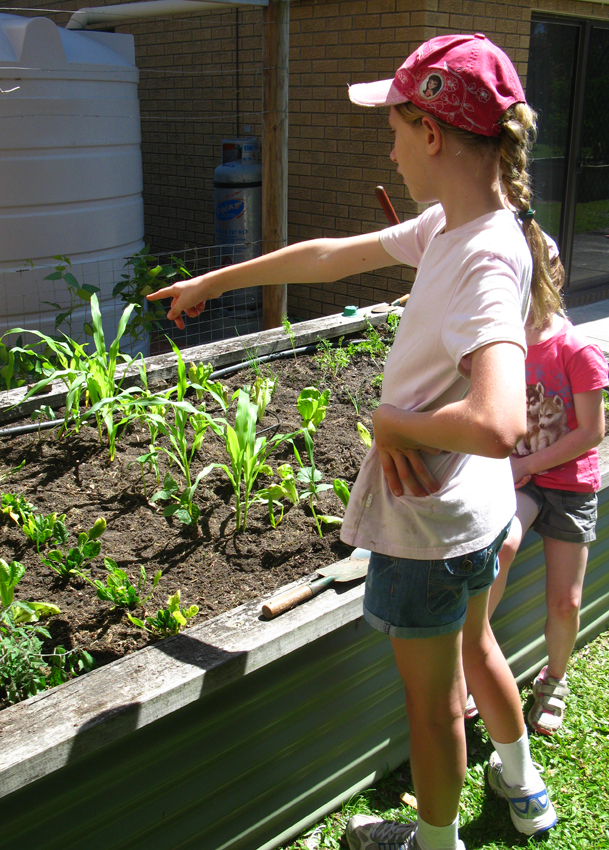Its been 2 weeks since Grounded started 'Garden Goodness' at the Reid's house in Cabarita Beach and despite a strange start to our spring weather on the Tweed Coast, the newly planted veggies are all booming and healthy. It would be expected that within the next week baby spinach will be ready to harvest and lettuce the week after. Sweet corn is growing very well and will provide shade for some of the leafy crops in the next couple of weeks.
With a strong, hot spring and summer anticipated this year, its important to mulch your veggies well (we recommend Amgrows Organix BFA certified sugar cane mulch) to retain as much water as you can. Most summer veggies, Capsicum, Tomatoes, Eggplant, Cucumbers, Melons, etc. can all handle hot days, but as the fruit is largely composed of water, these veggies will need consistent water to set and produce good fruit. With that in mind, its essential to mulch well to help you get the best results. Mulching keeps weeds at bay as well and adds great organic matter to your garden as it breaks down. Salad and leafy greens will need protection from the heat so always consider shade when growing quick harvest veggies like lettuce.
We will check in with Reids next week in anticipation of the first salad harvest !















